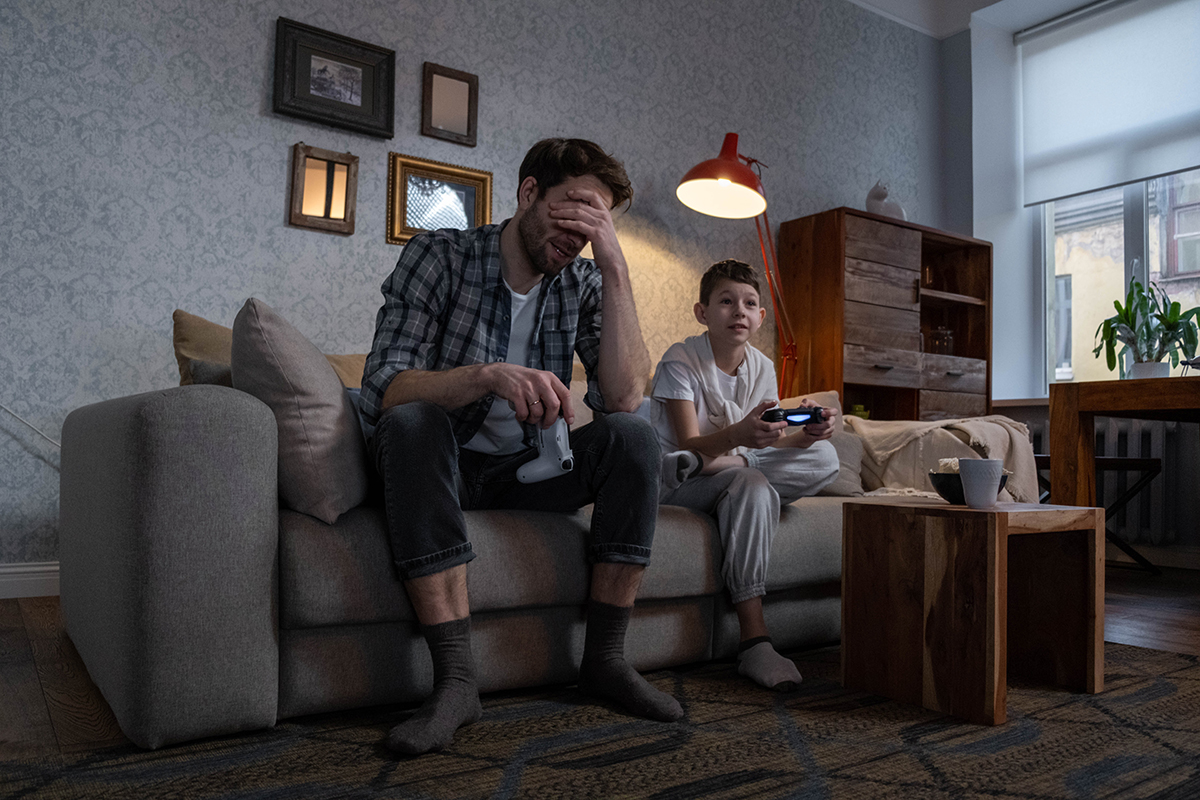Gaming is a hobby for billions of people worldwide. You may enjoy playing video games to bond with your children or connect online with friends. Many online, phone and console games feature challenging elements that make them rewarding, including puzzles, problem-solving strategies, collaboration or competition. Still, as with other aspects of technology, there is a dark side in the potential for video game addiction.
What Is Technology Addiction?
When you hear the word “addiction,” a seemingly harmless pastime like playing games probably isn’t the first thing you picture. However, video game designers are always looking for ways to draw people in by making their products more fun, exciting and accessible. There are also more ways to experience video games than ever, with technology always within reach.
One characteristic of addiction is the compulsive urge to continue a behavior, even when faced with negative consequences. For example, if playing video games becomes your primary coping mechanism, it may cause you to neglect other essential areas of your life, like your job responsibilities. Some people who primarily use gaming to interact with the world may find their real-life relationships suffering as a result.
Addiction and Your Brain
People get addicted to technology like video games, gambling websites, social media and dating apps because they provide intermittent rewards that stimulate a release of dopamine in their brains. If you experience this enough from any activity, you develop a powerful drive to seek that pleasurable sensation over and over.
Experiments with laboratory rats demonstrate how persuasive and all-consuming this urge can be. Rats given the ability to self-stimulate their brain’s reward center by pressing a lever ignored physical instincts to eat, drink and mate in favor of activating the mechanism, sometimes thousands of times per hour.
Warning Signs of Video Game Addiction
Aside from creating pleasurable feelings in the brain, dopamine helps keep people interested and attentive, which is why it can be so challenging to tear yourself away from an immersive video game. Technology addiction is also a vicious cycle. By repeatedly engaging in addictive behavior, you are retraining your brain to keep coming back for more.
Some additional red flags of a worsening video game addiction include:
- Frequently losing track of time while gaming
- Having repetitive, intensely intrusive thoughts about video games when you are not playing them
- Spending money on new games, consoles or in-app purchases, even when you can’t afford them
- Preferring to socialize with people through technology, instead of in-person interactions
- Ignoring other responsibilities in your personal, academic or professional life in favor of gaming
- Experiencing issues with your relationships because you cannot stop playing games
- Becoming irritable or anxious when you aren’t gaming, even for brief periods
- Lying to others about how much time or money you spend on video games
- Feeling the need to play more to achieve the same level of enjoyment
- Neglecting your hygiene or grooming, such as skipping showers or dental care
- Forgetting to eat or drink while you are gaming
How to Get Help for a Video Game Addiction
Kids and adults alike can develop a video game habit, and once your brain forms the link between technology use and rewards, it can be challenging to break. Technology addiction treatment can be beneficial if you are concerned about yourself or a loved one. A rich, rewarding life awaits outside your screen. Contact us at Pine Grove Behavioral Health and Addiction Services to learn more about our outpatient tech addiction program.

